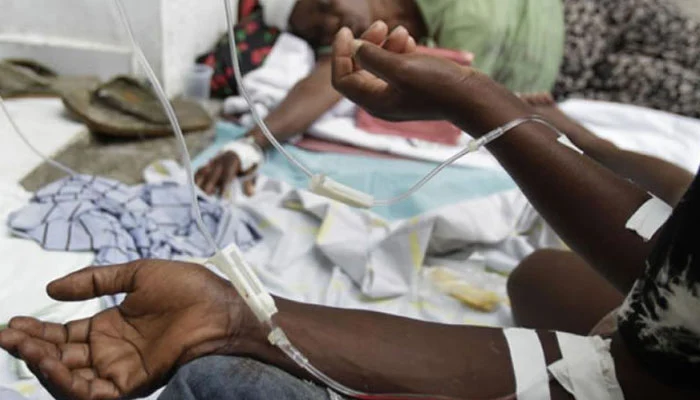Angola is battling its deadliest cholera outbreak in two decades, with nearly 600 people killed and more than 18,000 infected since January, according to United Nations agencies.
The disease has spread to 17 of the country’s 21 provinces, prompting a large-scale response from Angola’s Ministry of Health, the World Health Organization and other partners. Efforts include case detection, deployment of rapid response teams and community outreach.
“We walk around with loudspeakers, urging people to do what they can to get rid of this evil,” said António Catunda, a health promotion supervisor.
A vaccination campaign launched in February has reached about 1 million people. However, the country’s cholera case fatality rate stands at 3.2%, more than triple the 1% threshold used as a benchmark for adequate and timely treatment.
Health workers on the front lines say they are stretched thin. “We’re tired of seeing deaths, we’re tired of seeing patients with these problems,” said Flávio Njinga, a community health agent. “We want at least one day of rest, but we can’t. We are the rapid response team, and we won’t stop until this is over.”
The outbreak is affecting people of all ages, with youth under 20 years old most impacted.
Angola’s last major cholera outbreak in 2006 claimed more than 2,700 lives. The country has experienced recurring outbreaks since then, especially during the rainy season.
Across Eastern and Southern Africa, more than 178,000 cholera cases have been confirmed between January 2024 and March 2025, with Angola and South Sudan among the hardest hit, according to UNICEF.

